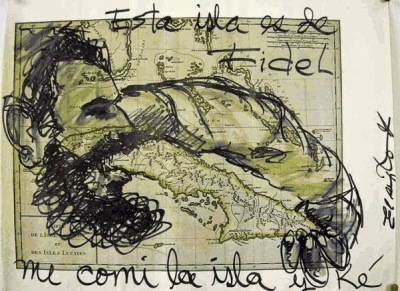Implications of Ending the Cuban Embargo
Focus on Cuba
Jaime Suchlicki*
October 20, 2014
If the U.S. were to end the embargo and lift the travel ban without major reforms in Cuba, there would be significant implications:
• Money from American tourists would flow into businesses owned by the Castro government thus strengthening state enterprises. The tourist industry is controlled by the military and General Raul Castro.
• Tourist dollars would be spent on products, i.e., rum, tobacco, etc., produced by state enterprises, and tourists would stay in hotels owned partially or wholly by the Cuban government. The principal airline shuffling tourists around the island, Gaviota, is owned and operated by the Cuban military.
• American tourists will have limited contact with Cubans. Most Cuban resorts are built in isolated areas, are off limits to the average Cuban, and are controlled by Cuba’s efficient security apparatus. Most Americans don’t speak Spanish, have but limited contact with ordinary Cubans, and are not interested in visiting the island to subvert its regime. Law 88 enacted in 1999 prohibits Cubans from receiving publications from tourists. Penalties include jail terms.
• While providing the Castro government with much needed dollars, the economic impact of tourism on the Cuban population would be limited. Dollars will trickle down to the Cuban poor in only small quantities, while state and foreign enterprises will benefit most.
• The assumption that the Cuban leadership would allow U.S. tourists or businesses to subvert the revolution and influence internal developments is at best naïve. As we have seen in other circumstances, U.S. travelers to Cuba could be subject to harassment and imprisonment.
• Over the past decades hundred of thousands of Canadian, European and Latin American tourists have visited the island. Cuba is not more democratic today. If anything, Cuba is more totalitarian, with the state and its control apparatus having been strengthened as a result of the influx of tourist dollars.
• As occurred in the mid-1990s, an infusion of American tourist dollars will provide the regime with a further disincentive to adopt deeper economic reforms. Cuba’s limited economic reforms were enacted in the early 1990s, when the island’s economic contraction was at its worst. Once the economy began to stabilize by 1996 as a result of foreign tourism and investments, and exile remittances, the earlier reforms were halted or rescinded by Castro.
• Lifting the embargo and the travel ban without major concessions from Cuba would send the wrong message “to the enemies of the United States”: that a foreign leader can seize U.S. properties without compensation; allow the use of his territory for the introduction of nuclear missiles aimed at the United States; espouse terrorism and anti-U.S. causes throughout the world; and eventually the United States will “forget and forgive,” and reward him with tourism, investments and economic aid.
• Since the Ford/Carter era, U.S. policy toward Latin America has emphasized democracy, human rights and constitutional government. Under President Reagan the U.S. intervened in Grenada, under President Bush, Sr. the U.S. intervened in Panama and under President Clinton the U.S. landed marines in Haiti, all to restore democracy to those countries. The U.S. has prevented military coups in the region and supported the will of the people in free elections. U.S. policy has not been uniformly applied throughout the world, yet it is U.S. policy in the region. Cuba is part of Latin America. While no one is advocating military intervention, normalization of relations with a military dictatorship in Cuba will send the wrong message to the rest of the continent.
• Once American tourists begin to visit Cuba, Castro would probably restrict travel by Cuban-Americans. For the Castro regime, Cuban-Americans represent a far more subversive group because of their ability to speak to friends and relatives on the island, and to influence their views on the Castro regime and on the United States. Indeed, the return of Cuban exiles in 1979-80 precipitated the mass exodus of Cubans from Mariel in 1980.
Click link above for balance of article.



